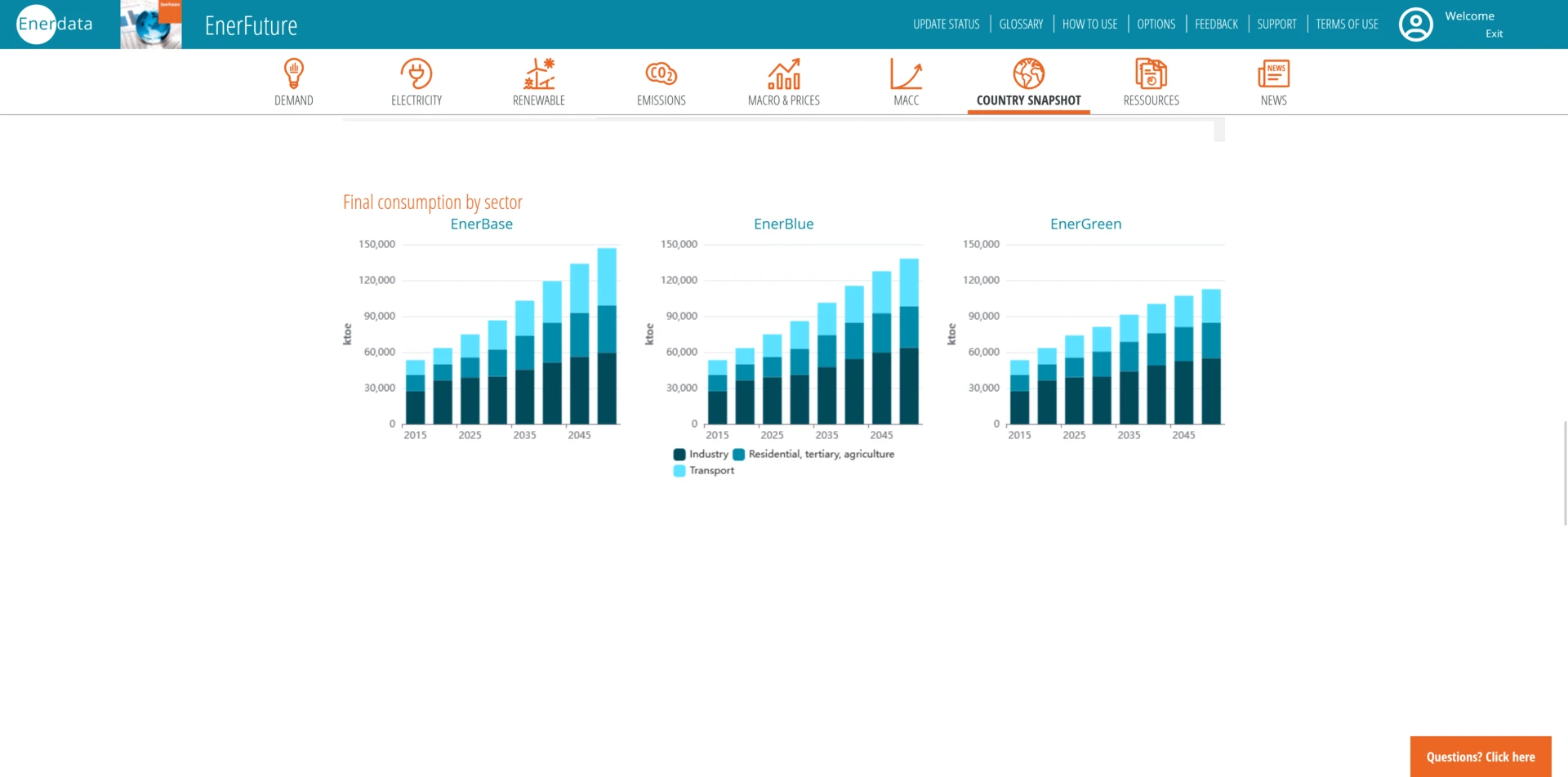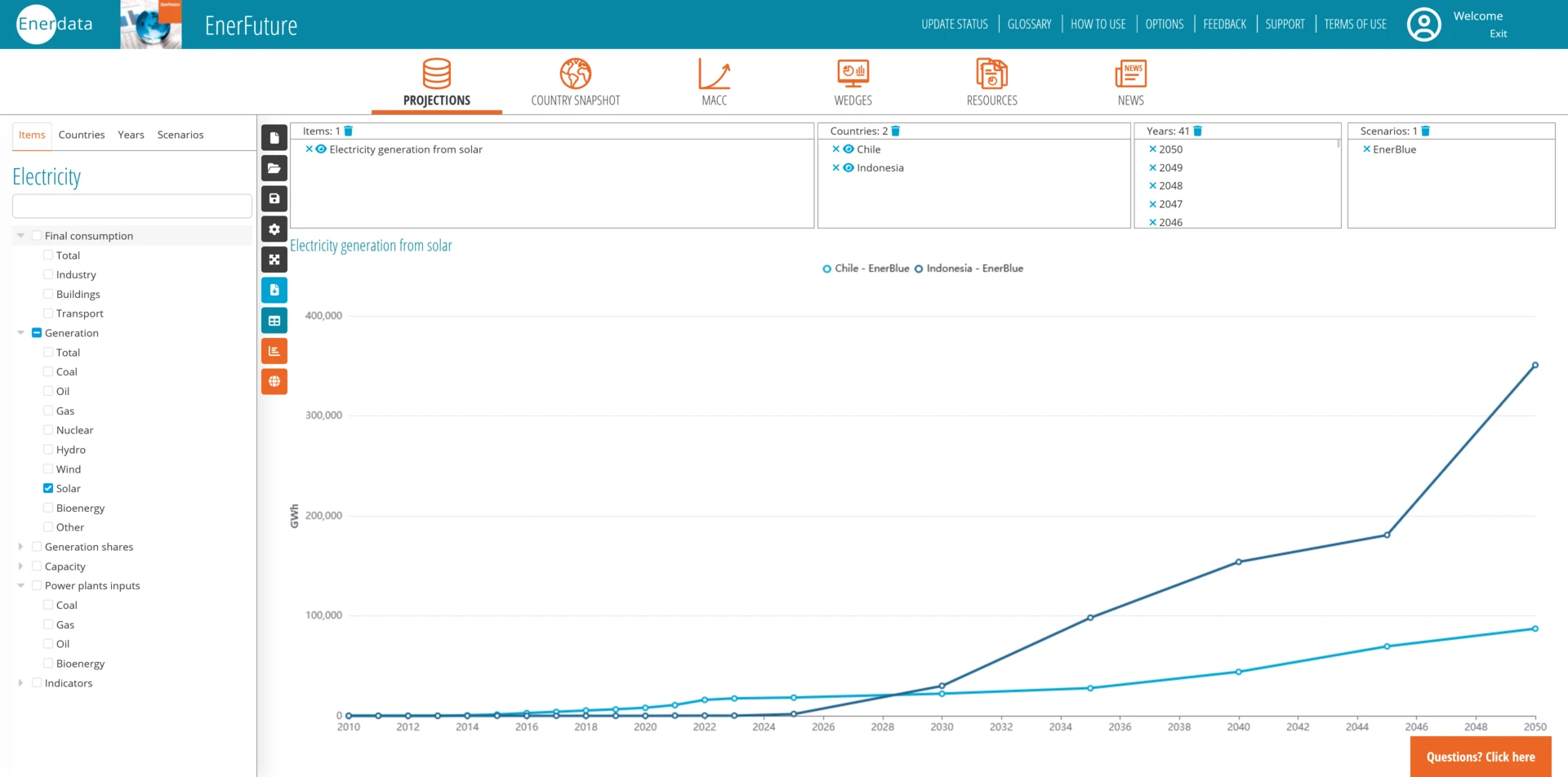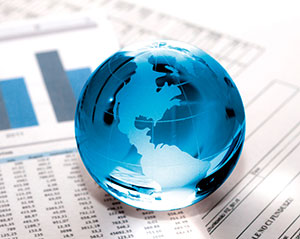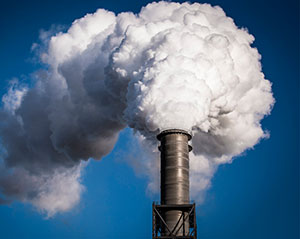더 많은 예측
이 인터페이스에 포함된 시리즈는 Enerdata에서 사용할 수 있는 데이터의 짧은 발췌문입니다. 의 EnerFuture 서비스. 전체 서비스는 다음을 제공합니다.
- 최종 사용자 가격, 발전량 및 에너지원별 용량 등을 포함한 기타 많은 시리즈
- 65개 이상의 개별 국가 및 지역 집합을 포함하는 확장된 전 세계 적용 범위.
- 추가 시나리오 : EnerOutlook의 데이터는 EnerBlue 시나리오(NDC 성과)에 해당하는 EnerFuture에 EnerBase(현재 상황) 및 EnerGreen(2°C 시나리오)의 시나리오가 제공됩니다.
- 상세 분석: EnerFuture에서 국가별, 부문별, 에너지원/벡터별 모든 시리즈의 완전한 분류와 같은 통찰력 있는 세부 정보를 제공합니다. 예를 들어 미국 건물 부문의 최종 가스 소비량, 중국 산업의 전기 가격, 인도의 발전용 태양열 용량, 유럽 및 회원국별 산업의 CO2 배출량 등
- 전체 MS-Excel 기능 : EnerFuture는 사용자가 맞춤형 예측 세트를 선택하고 선택 항목을 사용자 친화적인 MS-Excel 시트(시리즈 또는 국가별로 정렬)로 내보내 추가 분석을 용이하게 합니다.
- 추가 분석 지표: 거시 경제 지표(경제 성장, 인구, 1인당 GDP), 수요 지표(1차 에너지 집약도, 1인당 에너지 및 전력 소비), CO2 지표 포함 (주민당 배출량, 발전의 CO2 집약도, 탄소 가격, GDP 대비 CO2 집약도), 재생 에너지 지표(1차 및 최종 소비의 점유율, 발전 점유율 ) 및 기타
- 8개 유럽 국가 및 EU 전체에 대해 장비 보급률, 최종 용도별 에너지 구성, 주행 거리 등을 포함한 보다 상세한 에너지 수지, 수요 지표 및 활동 동인 정보를 제공합니다.
- 한계 저감 비용 곡선(MACC): 주어진 연도, 국가 및 부문에서 선택된 탄소 가격으로 도달할 수 있는 배출 수준과 완화/감소 배출 수준을 모두 제공합니다. 이러한 수준은 명시적으로 상세한 표준 시나리오에서 파생됩니다. MACC는 다양한 탄소 가격에 제공됩니다.
- A “Wedges” module: 세부 내역을 보여주세요배출량을 줄일 수 있게 하는 수단 두 시나리오 사이
- 국가 스냅샷: 관심 국가를 선택하고 직관적인 그래프와 표를 통해 미래 에너지 시스템의 주요 추세를 탐색합니다.
EnerFuture 미리보기





